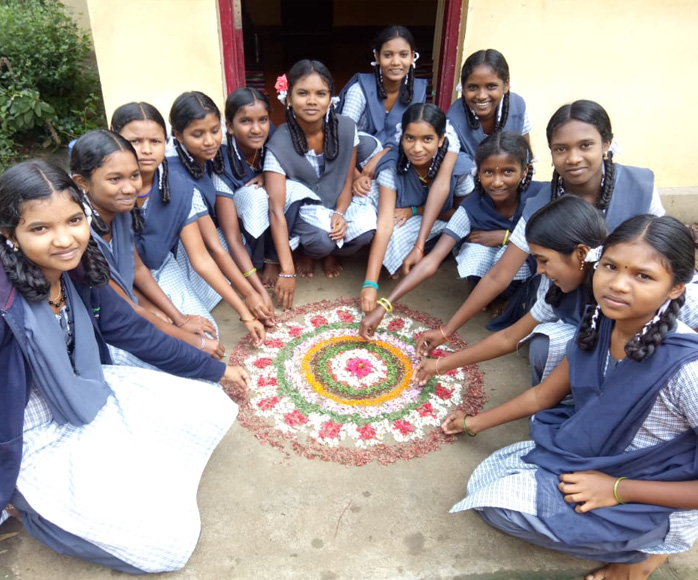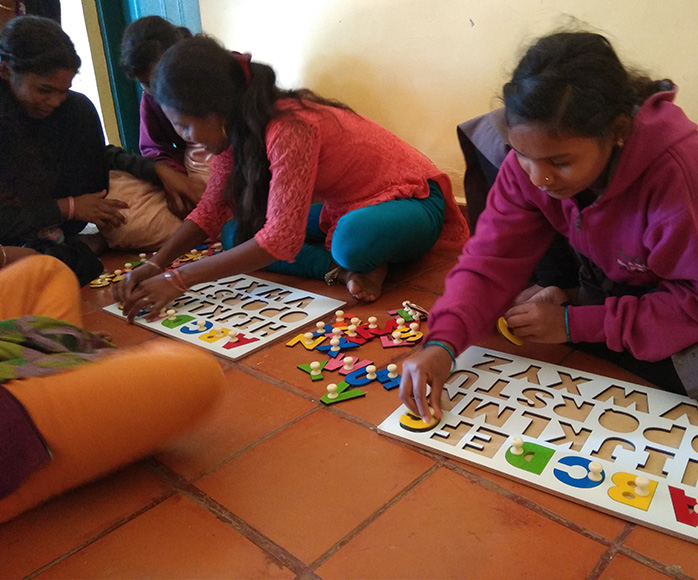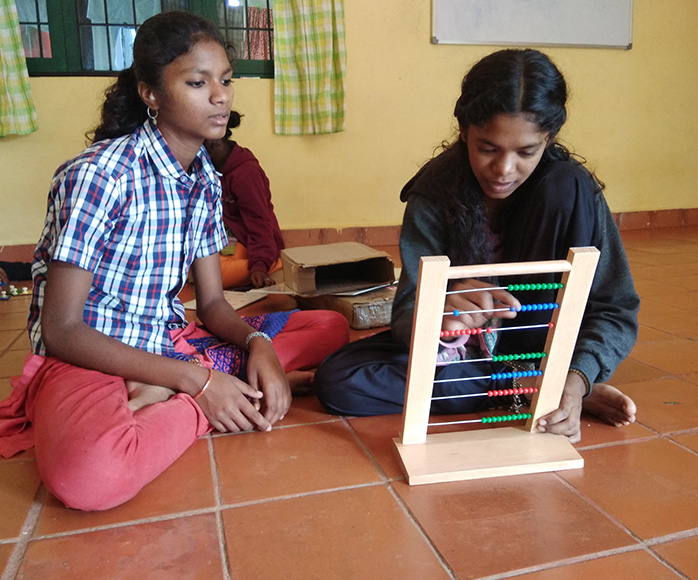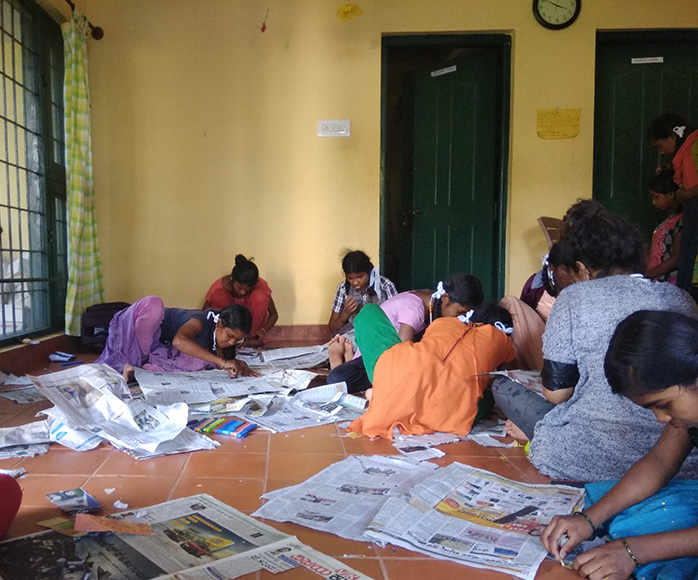The Children's College, a learning community of children at the Nagarhole forest area near Mysore (4 hours drive from Bangalore, India) provides a sanctuary for adivasi (tribal) children whose parents’ lives were brutally disrupted by the construction of the large Kabini water reservoir and by the new forest conservation laws which stated that human beings who lived in the forest were a threat to flora and fauna. Denied access to their traditional ways of making a living from the forest, adivasis must migrate to find work. Adivasis are the poorest people living around the Kabini reservoir, struggling to eat even one simple meal a day. Their children must fend for themselves and make a living from the limited hunting that is permitted by the authorities or forage what they can in the forest.These children are not orphaned or unloved. They are rooted in place and in the community of that place. But they are not well cared for as community resources are limited. They are straddling the cultures of tribal and modern India and they have little hope of thriving without adequate access to nutritious food, clean water, shelter and education.
Who we do it for
Two key factors have made it difficult for Tribal Children, particularly the girl child, to develop good competencies to compete with regular children:- Tribal children have difficulty with the pedagogy used in schools. Unlike other village or town children, they are experiential learners rather than rote learners. In absence of modified curricula and teaching methodologies, tribal children fall back in both language and STEM education. Competencies in both these areas are required for advancement into the semi-skilled labor force which pays more and is more stable than the daily wage-earning unskilled labor force.
- The tribal children are also handicapped from acquiring digital skills that are now very necessary to live in the world outside the forest. They do not have access to computer resources and may have no access to even basic smart phones. Most of their parents have basic feature phones that cannot access digital content.



